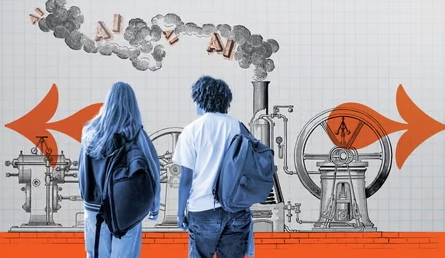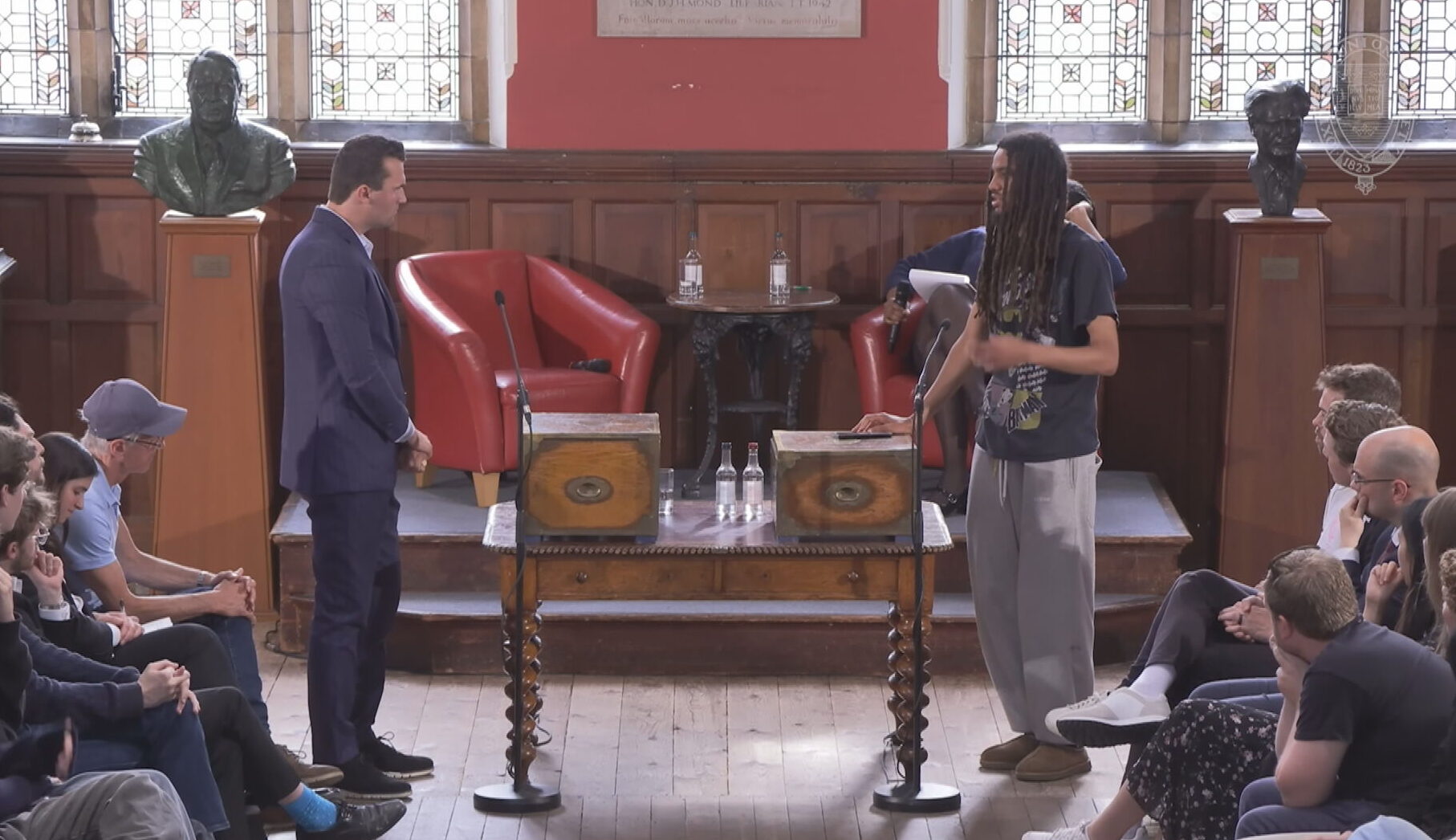Students might soon face a very different exam experience as generative artificial intelligence (AI) reshapes how they learn and are tested. Oral assessments, tighter exam security, and faster marking are all on the table as AI becomes a core skill for the next generation.
As GCSE students collected their results this week, mostly after taking traditional pen-and-paper exams, the role of AI in education is already transforming the landscape. Students are increasingly creating personal AI tutors, available 24/7, to generate learning materials tailored to their needs, potentially boosting their results.
“Using AI can give a student a much better understanding of a subject because they can ask questions they wouldn’t in class, at odd hours, without being judged,” said Dr. Andrew Rogoyski from the Surrey Institute for People-Centred AI.
“It really took off this summer,” added Sandra Leaton Gray, a professor of education futures at University College London’s Institute of Education. “Students can upload marking frameworks, create sample answers, and then ask the AI: ‘How would you improve this?’ It’s like having a tireless tutor.”
Some experts believe the pace of AI development could make entirely new types of exams necessary. Dr. Thomas Lancaster, a computer scientist at Imperial College London, said: “This is becoming such a core digital skill now. I think an exam of this type is inevitable.”
Lancaster also warned AI could create new opportunities for cheating. “We’ll likely need more security checks during exams and better training for invigilators to spot disallowed devices,” he said. “Devices can now be tiny, like hidden earpieces, and AI-enabled smart glasses are another risk.”
Sir Ian Bauckham, chief regulator at England’s qualifications watchdog Ofqual, expressed concern over AI’s impact on extended writing coursework. In an interview with The Guardian, he highlighted the extended project qualification, an independent research project worth half an A-level.
“It’s a valuable part of the system, and universities often tell us they value it too,” Bauckham said. “But I am worried about the extent to which AI may be supporting students in that qualification.” He cautioned against moving entirely away from exams, where AI use can be controlled, toward unsupervised coursework.
Rogoyski echoed these concerns. “Our assumption that an essay reflects a student’s mastery is being challenged, especially if the work is unsupervised. Exams may need to focus more on testing understanding, whether the work was done by AI or the student. That could mean more vivas or discussions about the topic.”
He also warned of early signs of AI dependency: “Students risk losing their own skills to analyse, write, and critique subjects if they rely too heavily on AI.”
There are potential benefits, too. Jill Duffy, chair of the Joint Council for Qualifications and CEO of OCR, said AI could make marking faster and more accurate. Trials using AI to convert handwritten answers into digital text could mean results are delivered in a month instead of two, allowing students to secure university places based on actual grades rather than predictions.
Duffy also noted that oral assessments are already common in higher education, and schools might follow suit. “If we’re seeing it there, it could start to cross over into schools,” she said.
Lancaster summed it up: “Exams are here to stay, but they may look very different in the future.”






